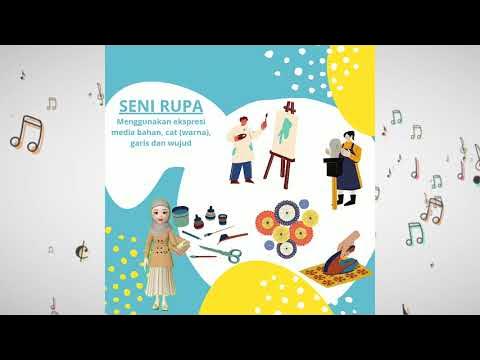Understand Goal 4: Quality Education (Secondary)
Summary
TLDRThe video script emphasizes the universal right to quality education, highlighting its role in fostering equality and creativity. It underscores the UN's Sustainable Development Goal for education and Costa Rica's exemplary investment in literacy. Despite progress, disparities persist, with many lacking access to education and resources. The script calls for collective action to achieve education for all by 2030, with initiatives like E-Rate and UN programs aiming to bridge gaps and empower communities.
Takeaways
- 📚 Everyone has the right to quality education, which includes not just literacy and numeracy but also learning resources and opportunities for personal growth.
- 🌐 Quality education is one of the 17 Sustainable Development Goals set by the UN, highlighting its importance in creating an equal world.
- 🧠 Education is crucial for children's development, fostering creativity, analytical thinking, and empathy, which are essential for their future success and contribution to society.
- 💻 Some countries invest heavily in educational resources like the internet, computers, and books to ensure students have the tools they need to learn effectively.
- 📈 Costa Rica's decision to invest in education over military has resulted in a literacy rate of almost 98%, demonstrating the impact of prioritizing education.
- 🏛 Education is seen as the foundation of democracy and modern society, and countries with the resources are committed to investing in this belief.
- 😔 Millions of people worldwide are denied access to education due to financial constraints, lack of resources, or other barriers.
- 🏫 In some regions, schools struggle with insufficient materials, large class sizes, and a shortage of teachers, which hinders the quality of education.
- 🌍 Global literacy rates have improved by 17% in the last 30 years, showing that progress is being made, albeit unevenly.
- 🔗 Initiatives like the E-Rate in the U.S. are helping to bridge the digital divide by connecting rural schools to the internet.
- 🏗️ The UN collaborates with governments and charities to build schools and libraries in developing countries, providing safe learning environments and fostering sustainable lifestyles and technical skills.
Q & A
What is the fundamental right that everyone deserves according to the script?
-Everyone deserves the right to a quality education, which includes access to trained teachers, learning resources, and opportunities beyond basic literacy and numeracy skills.
Why is quality education important for creating an equal world?
-Quality education is important because it allows individuals to learn about the world and their place in it, fostering a sense of equality and understanding among people from different backgrounds.
What is one of the 17 Sustainable Development Goals set by the UN?
-One of the 17 Sustainable Development Goals set by the UN is to provide quality education for all.
How does education contribute to an individual's growth and community involvement?
-Education helps individuals grow by providing them with the ability to provide for themselves and become valuable members of their community. It also nurtures creativity, analytical thinking, and empathy.
Why did Costa Rica end their military program in the 1940s?
-Costa Rica ended their military program in the 1940s to allocate the funds to education, which led to a literacy rate of almost 98%.
What is the significance of investing in education for a country's democracy and modern society?
-Investing in education forms the cornerstone for democracy and modern society as it equips individuals with the knowledge and skills necessary for active participation and contribution to the community.
What challenges do millions of children and adults face regarding education worldwide?
-Millions of children and adults face challenges such as lack of access to information, inability to afford education, and inadequate school resources like materials and teachers.
What is one example of a project that aims to improve education access in rural areas?
-One example is the E-Rate project in the U.S., which connects rural schools to the Internet, improving access to educational resources.
How is the UN working towards achieving quality education for all by 2030?
-The UN is collaborating with governments and charities to build schools and libraries in developing countries, provide safe learning spaces, and support the development of sustainable lifestyles and technical skills.
How has global literacy improved over the past 30 years?
-Global literacy levels have risen by 17% in the last 30 years, indicating progress in education access and quality worldwide.
What can be done to continue the progress towards achieving quality education for all?
-Continued collaboration among individuals, governments, and organizations is needed to ensure that quality education is accessible to all, addressing issues like large class sizes, teacher shortages, and resource scarcity.
Outlines

هذا القسم متوفر فقط للمشتركين. يرجى الترقية للوصول إلى هذه الميزة.
قم بالترقية الآنMindmap

هذا القسم متوفر فقط للمشتركين. يرجى الترقية للوصول إلى هذه الميزة.
قم بالترقية الآنKeywords

هذا القسم متوفر فقط للمشتركين. يرجى الترقية للوصول إلى هذه الميزة.
قم بالترقية الآنHighlights

هذا القسم متوفر فقط للمشتركين. يرجى الترقية للوصول إلى هذه الميزة.
قم بالترقية الآنTranscripts

هذا القسم متوفر فقط للمشتركين. يرجى الترقية للوصول إلى هذه الميزة.
قم بالترقية الآنتصفح المزيد من مقاطع الفيديو ذات الصلة

SDG 4 Quality Education - UN Sustainable Development Goals - DEEP DIVE

Rights against exploitation

Tugas dan fungsi pendidikan serta nilai-nilai pendidikan dan filosofis yang ada di bulan ramadhan

Media Pembelajaran Seni Budaya - Wawasan Seni @HidayahNurulNoura

Educare ai diritti umani

Teaching art or teaching to think like an artist? | Cindy Foley | TEDxColumbus
5.0 / 5 (0 votes)
